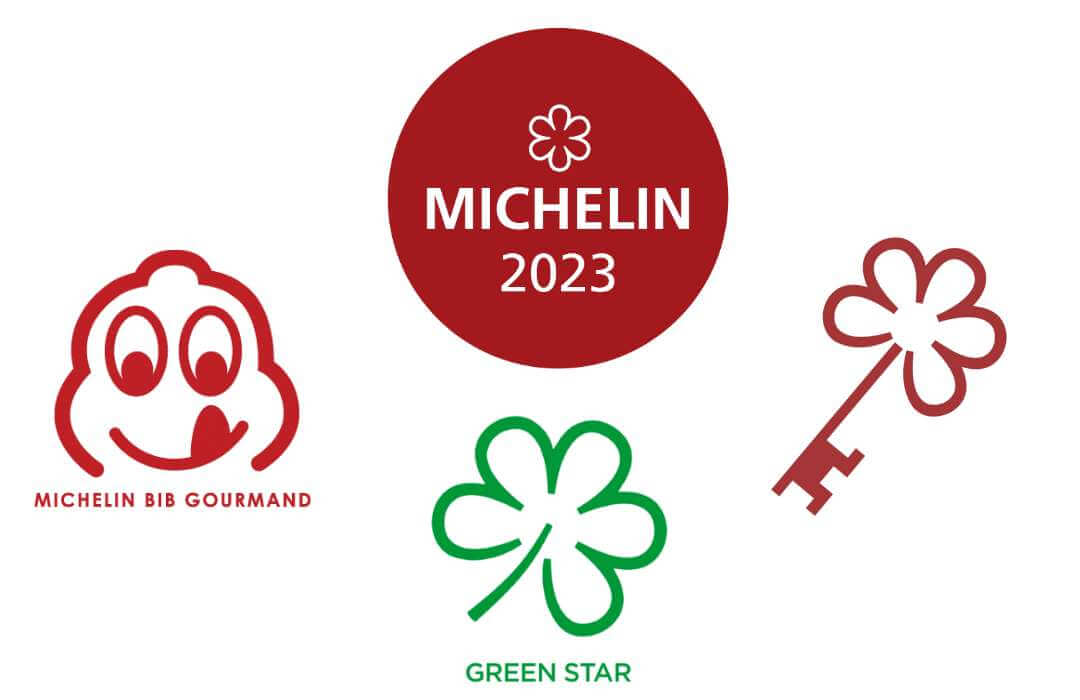Last week, I attended the 2022 Cookscamp organized by Chef’s Table Society of BC. More than a hundred BC cooks have gathered at North Arm Farm, in Pemberton, to participate in seminars about hospitality industry trends, real-time demonstrations and practical workshops that focus on the real world aspects of a cook’s life.
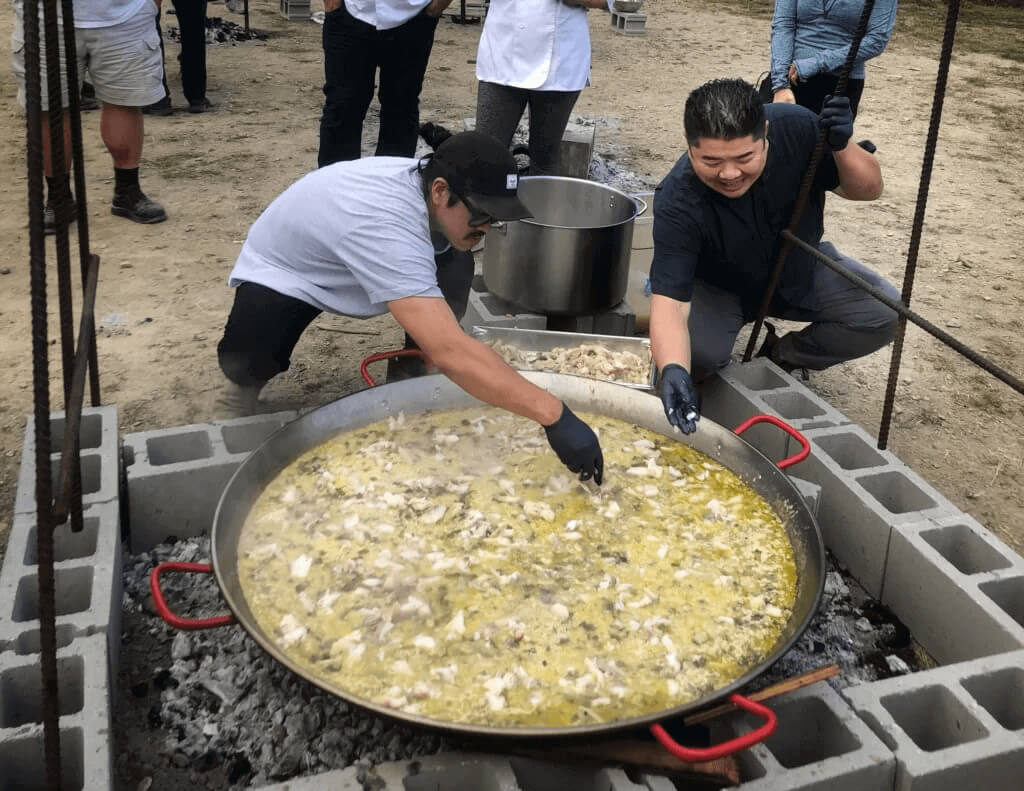
Chef Alex Chen, Culinary Executive at Boulevard Kitchen & Oyster Bar, is cooking a paella

Ben Liegey at the Cooks Camp (North Arm Farm, Pemberton, BC)
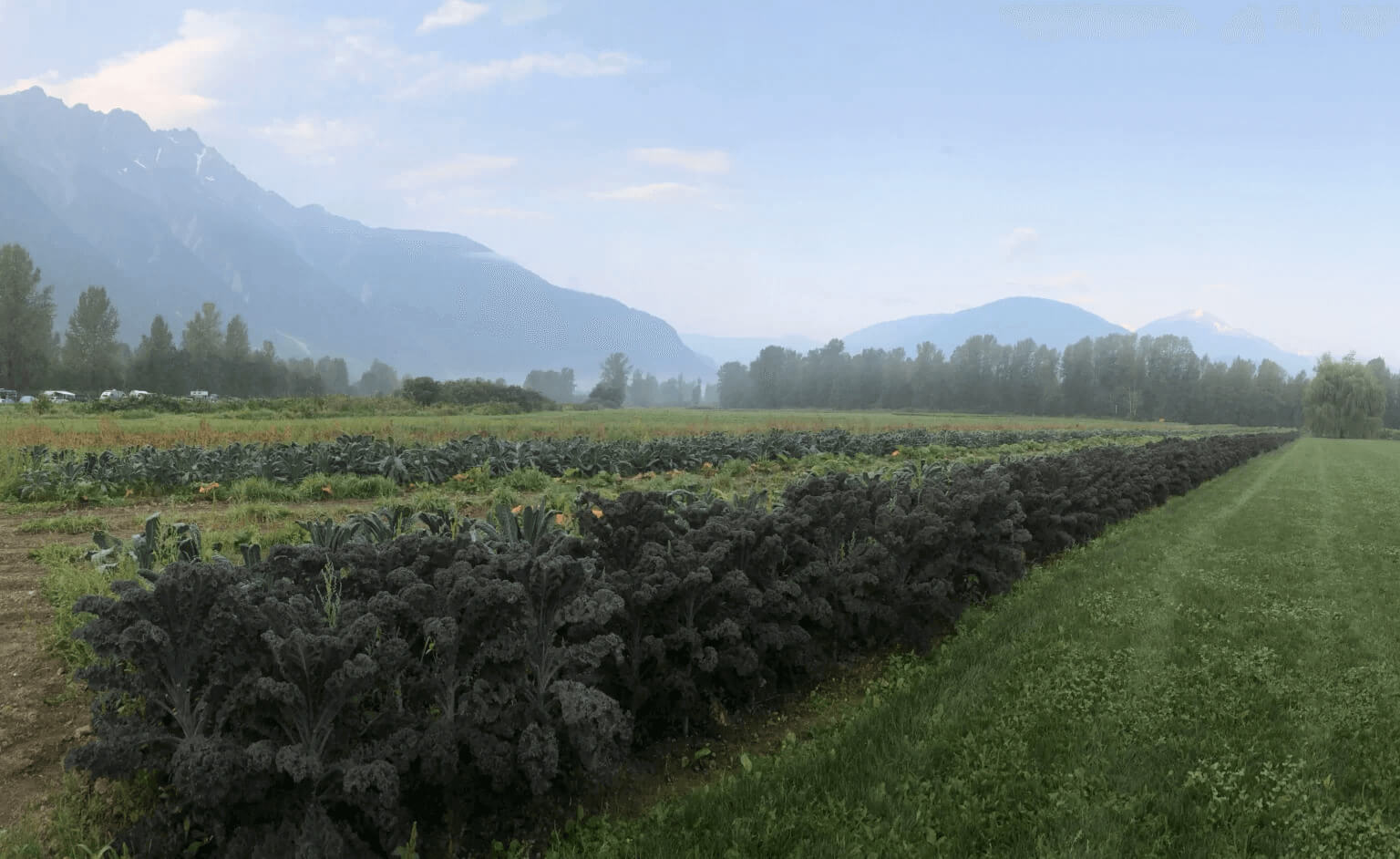
Participants gathered at the North Arm Farm, an organic farm in Pemberton, BC.
Here are 5 key insights from this first event of its kind in Canada!
#1 Leverage farm-to-table agriculture
Chef Bill Jones, owner of Deerholme Farm, is a renowned chef and foraging expert. Originally from Vancouver Island, he is a French-trained chef who has worked in Michelin-starred restaurants and prestigious locations around the world. The demand for farm-to-table restaurant increases and there is a growing interest from the chef community. In March-April, he suggest picking chanterelle mushrooms right after the first rain. Some Canadian sturgeons and caviar was also available to taste a unique Canadian food experience.

Foraging workshop
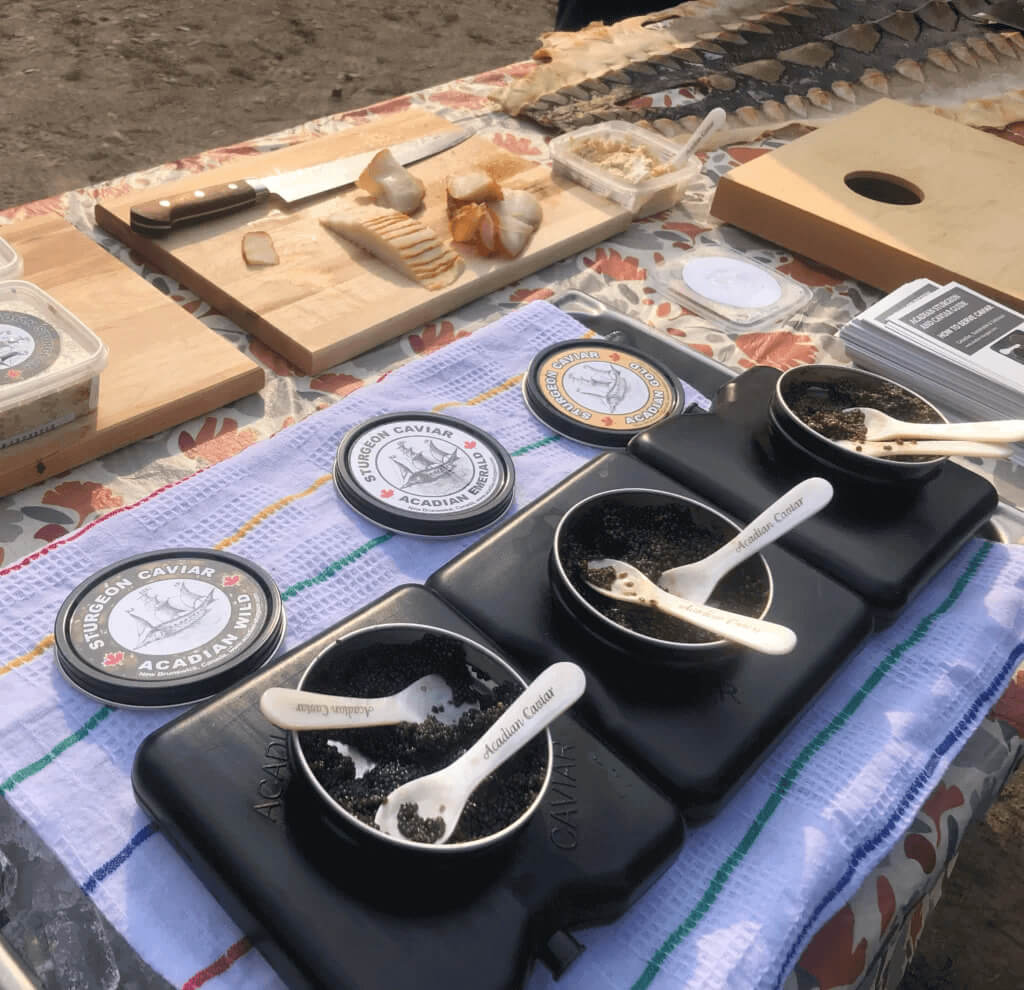
Canadian caviar and sturgeon tasting
#2 Celebrate indigenous food
Chef Kil Tlaa’sgaa Brodie Swanson is the Executive Chef at Ocean House, in Haida Gwaii where he grew up. As an Indigenous Chef whose Haida name (Kil Tlaa’sgaa) means strong voice, he is the ultimate culinary ambassador. His elaborate tide-to-table creations include locally caught Ocean Wise fish and seafood – like wild Chinook and Coho salmon, halibut, lingcod and scallop, complemented by locally-sourced ingredients. His sweet creations include a fruity and foamy desert made of local Salal Berries. Delicious!
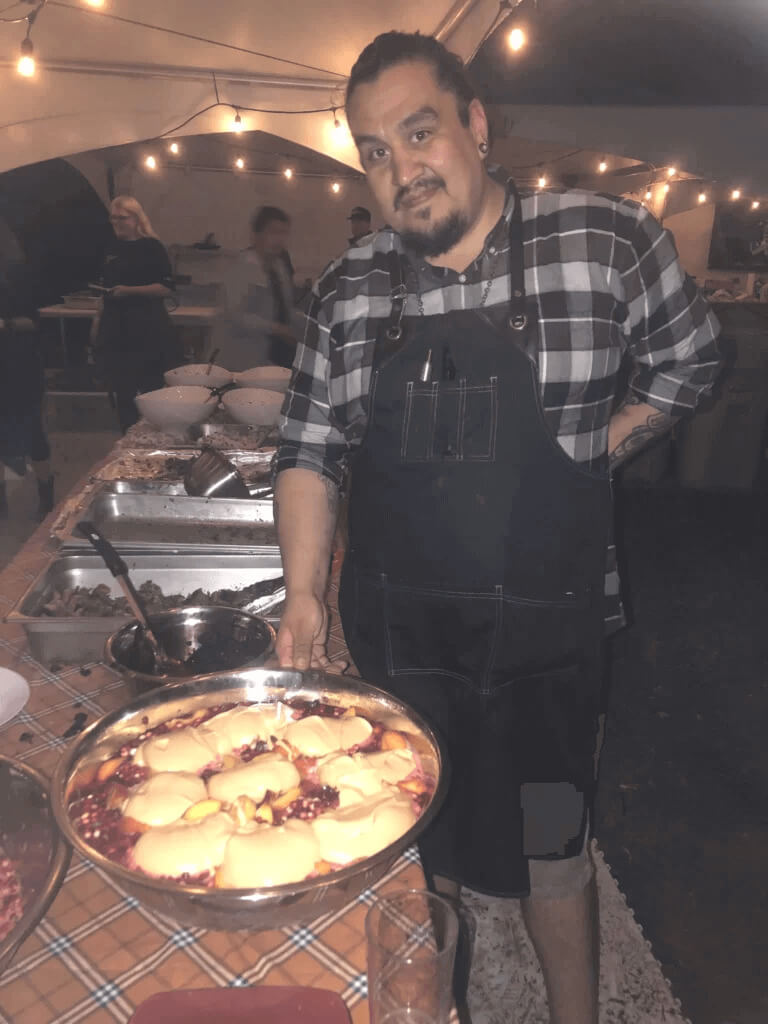
Indigenous dinner at the Cookscamp
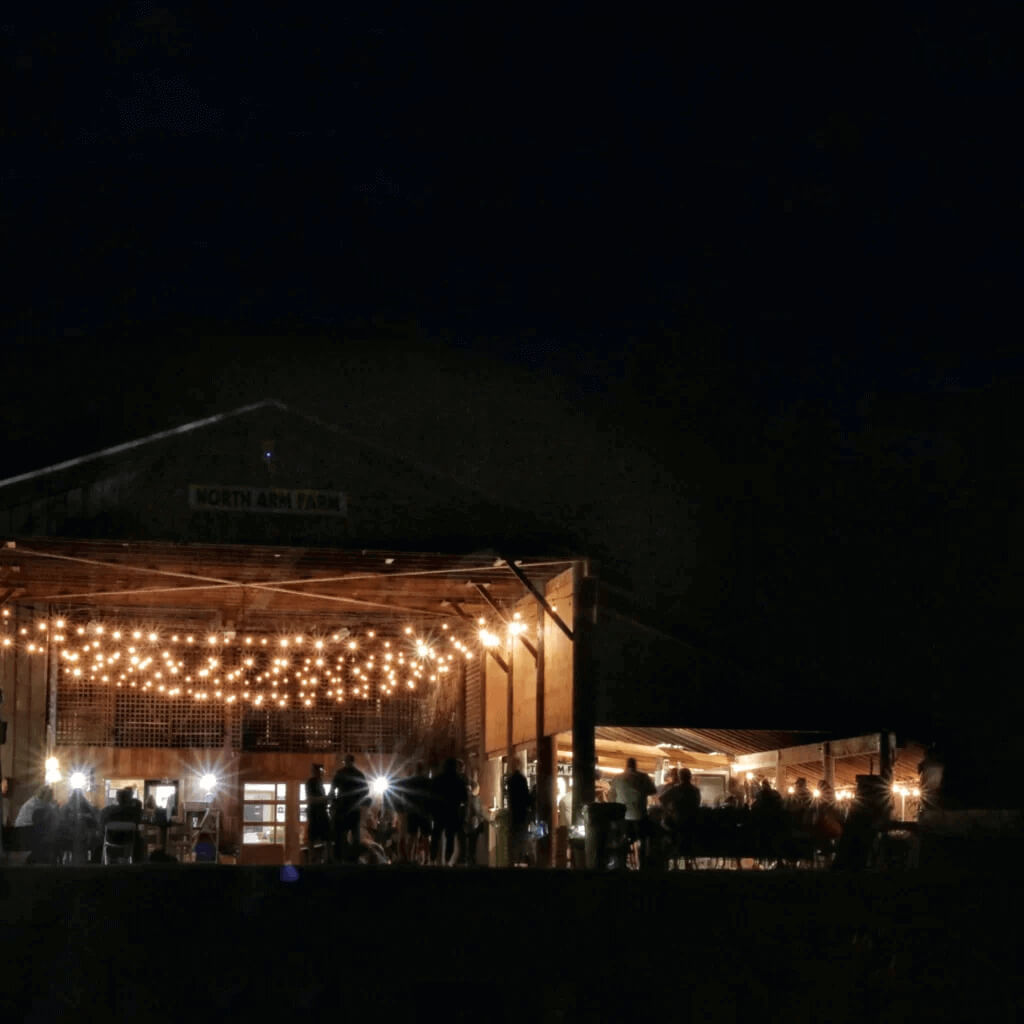
#3 Embrace creative & sustainable cooking
Shira Blustein is the founder of The Acorn + The Arbor Restaurants in Vancouver. She is on a mission to create a vegetable forward dining experience. Shira and her team have been dedicated to establishing meaningful connections with local farms, foragers and wineries, showcasing the amazing terroir driven food and wine BC has to offer.

Industry trends shared by restauranteursIndigenous dinner at the Cookscamp

#4 Have a “waste not, want not” mindset
Chef Christie Peters is the owner of 2 restaurants in Saskatoon: Primal Pasta and Pop Wine Bar, whose motto is “High Quality, Seasonal, Sustainable”. Sustainability has always been a driving force in her career, as well as working with the seasons and ingredients that her home province of Saskatchewan provides. Peter shared: “There is a lot of opportunity of making something out of nothing”. Her restaurant embrace the “waste not, want not” mindset, as every part of the vegetable is used and the leftover animal fat even gets made into soap! She also focuses on training, providing incentives for chefs to disseminate their knowledge with others.

#5 Improve work-life balance
Shane Lobsinger, previous chef and now Workplace Learning Coach at go2HR, has shared mental health resources to help front line employees, supervisors, managers and senior leaders in the tourism and hospitality industry. Right now, there is a 74% turnover rate in the restaurant industry, and it is especially hard to find breakfast cooks and dishwashers.
Some of the best HR practices to retain talents include:
- Offering free counseling for staff
- Offering health benefit account with no cap
- Offering profit sharing
- Offering 4 day work weeks
- Distributing tips more evenly
- Sharing your sustainability story



